In 2023 you’d be hard-pressed to find someone who hasn’t heard something about Generation Z, or “Zoomers” as they’re colloquially known.
This generation were born between the mid 90s and early 2010s, and are aged 11 to 26 this year. They have impact - making up 30% of the world’s population means that they are the largest generation ever.
They are defined by their integration of globally dispersed technology and culture, with the digital world sewn seamlessly into their lives. They’re more connected than any generation prior, with a faster pace of life, meaning time and attention is valuable and scarce.
For many marketeers these characteristics provide a daunting sense of doom; when dealing with the generation that has seen it all, heard it all and formed an opinion on it all. Navigating a digital marketing strategy aimed at them can prove incredibly challenging.
Targeting this age group through digital strategy is distinctly unique and evolved, particularly compared to the marketing for previous generations. But what exactly makes it so different?
The Dot Com Kids, Scepticism and Apathy
The 21st century has undoubtedly brought us many significant inventions, including streaming, XR, biometrics, smart homes, electric cars, 3D printing, cryptocurrencies, and a whole plethora of other notable advancements. But none of those are more widespread amongst the global population than smartphones, with 86% of the world now owning one, and a whopping 98% of Gen Z owning them.
Now, if you asked a psychologist before the 2000s about the effects of handing anyone a device for most of their life, that allows them to access any realm of the internet and exposes them to both wanted and unwanted experiences and sources of information, the chances are that they would tell you that it sounds like a terrible idea.
Whilst it is not the fault of Gen Z that they have been adopted into a digital world, it is an experience that they face the consequences of. And with such a bombardment of information and digital noise available daily, is it surprising that they have become increasingly desensitised?
They will always carry with them a stamp of digitised history as they have had access to more news, ideas, content and viewpoints than ever before, on a global scale that has also never been so easily accessible before.
This aspect undoubtedly makes it hard for marketeers to bring something original, fresh or vastly new to the table at which Gen Z focus their interest. And if they succeed, it is always a question of how long they will hold it for when you consider that Gen Z have an average attention span of 8 seconds.
But what about this other element? This tricky characteristic called scepticism that Gen Z carry around with them, tightly wedged next to their phone.
Oxford Dictionary define it as “an attitude of doubting” and it’s important to understand how this fits into the puzzle of Gen Z.
Unlike older and less digitally acquainted generations, members of Gen Z have grown accustomed to the fact that the internet publicises many false facts and advertisements in hopes of gaining attention.
Whilst their parents may believe that they have received a genuine friend request from a famous person, their children have developed an understanding that to survive on the internet is to question before believing.
And so, it is in Gen Z’s nature to second-guess what they see, hear and read during their online escapades, which makes it difficult for marketeers to gain their trust, interest, enthusiasm and perhaps most importantly, their purchasing power.
Despite these adversities, the fact stands that 2 billion of the global population is made up of Gen Z, so it’s no wonder why they have value to brands and marketeers alike. And with more and more of their age group entering the workforce, they are becoming the new generation of consumers to focus on, with a global buying power of $4.4 trillion.
But how do you create an appealing marketing strategy to this digitally native generation?
The Guidelines
Abandon The Scramble For Originality
Save yourself a lot of time and struggle by letting go of the desire to be original. Some would argue that it didn’t exist in the first place, that everything is inspired by something when you peel back the layers.
And for Gen Z, who spend a sizeable portion of their daily life in the digital realm, the idea of one-of-a-kind marketing has ceased to exist.
Once you’ve released the keen desire to be a unique marketeer, you will have space to consider the following, more important points.
Champion Authenticity and Morals
Due to their previously discussed scepticism and apathy, Gen Z value the authenticity and morality of brands above all else.
In fact, 83% of Gen Z’ers want brands to have a stance on important social issues, including climate change, the LGBTQ+ community, mental health, equality between race and gender and economic challenges.
And it’s important to approach these topics with a level of genuity, as Generation Z have an innate ability to sniff out performative activism and allyship like a police dog searching for illegal substances.
Forget creating a line of products for Pride Month as a quick cash-grab or jumping on the trending social issue of the time in a brief tweet. This guideline is about investing in, and committing to, the causes in a more meaningful way, which often requires brands to discard bragging rights.
It’s not necessarily an easy task. It will require time, effort, and most likely money, at least initially. But it is an essential step in helping Gen Z consumers to feel secure about brands they’re associating with and buying from.
Retain Credibility
Authenticity, morality and credibility all sit in the same boat, but credibility pertains more to brand image and longevity.
Although it is not impossible to crawl back from the banishment that Gen Z send deceptive brands to, it can often prove hard, and take time. That’s why it’s crucial to retain credibility as a marketeer or brand; if you make a promise, stick to it and follow through. It’s about having a decisive point, then backing it up proactively.
And it translates into real profit, as 73% of Gen Z only buy from brands that they believe in and 80% refuse to buy products from companies involved in scandals.
Don’t Be A Brand
Your first instinct reading the title of this guideline might be to pull a facial expression of confusion, but humour us for a moment.
The real meaning of this is that Gen Z have a distaste for traditional marketing. They dislike being sold products and services, and they have an opposition to the capitalistic underbelly of our society. They’re money-conscious and concerned with overconsumption.
Instead of trying to sell things, try to sell the brand. And to do this, it’s important not to act overly branded.
Ryanair are a great example of this on TikTok, where they have abandoned a traditional marketing strategy in favour of a brand personality; they place emphasis on the fact that they’re in the loop of internet culture and acknowledge Gen Z perceptions of their airline.
Keep Marketing Native
Gen Z appreciate brands that understand the digital landscape and can optimise content to individual marketing avenues. In fact, they’ll notice quickly if you don’t, and you’ll seem like the last remaining dinosaur.
Therefore, it is essential to master this aspect, whether that means using the correct video ratio or the tone of captions. It can include everything from format of content to the nature of interactions and responses.
It’s about knowing how each platform works, why it is suitable for a certain marketing strategy and how you can optimise the opportunity. Not every platform is suitable for every brand, product and service.
If the shoe doesn’t fit, accept that you’re not Cinderella this time around.
Short and Sweet
As we’ve discussed previously, Gen Z don’t have the longest attention span and there’s a plethora of marketing noise out there. They have been spoilt by the instantaneous nature of the digital landscape, everything at their fingertips, all at once, at any time.
Time is limited in their world, especially if they’re not engaged by what you’re putting out there, you’re unlikely to have a sprawling window of their time and focus.
So, keep your marketing short and to the point, they are likely to thank you for it.
Value User-Generated Content and Influencers
Whilst Gen Z have moved away from an interest in traditional branding, they have moved towards an enthusiasm for influencers and their “peers”. In fact, 72% follow influencers and 52% indicate that they trust the advice from them regarding products.
They like to feel that their thoughts, ideas, creations, talents and viewpoints are heard amongst the digital tsunami, and place emphasis on giving a platform to the Average Joes.
Favour them and the creators that they like, and, in turn, they’ll favour you.
Most Importantly…. Entertain
The very nature of Gen Z - their digital affinity, exhausted desensitisation, shortcoming of time - all culminate in the most important guideline: keep marketing entertaining, interesting and if possible, fun.
It’s not rocket science that people love what makes them feel good, and in turn, they love what stimulates their brain and interest.
With such a dense focus on heavy social topics and impending future worries, Gen Z also love the opportunity to switch off.
Being likeable as a brand in the digital playground doesn’t always have to be complicated, it can quite often be as simple as making consumers happy.
Conclusion
Overall, connecting with Generation Z through digital marketing can seem like a daunting task, but a worthwhile one considering the size of their cohort and their dominant presence across the digital scope.
Speaking their generation’s language can take time, trial and error, but once executed will lead to real payoffs and a favourable regard for brands which is well-earned.














